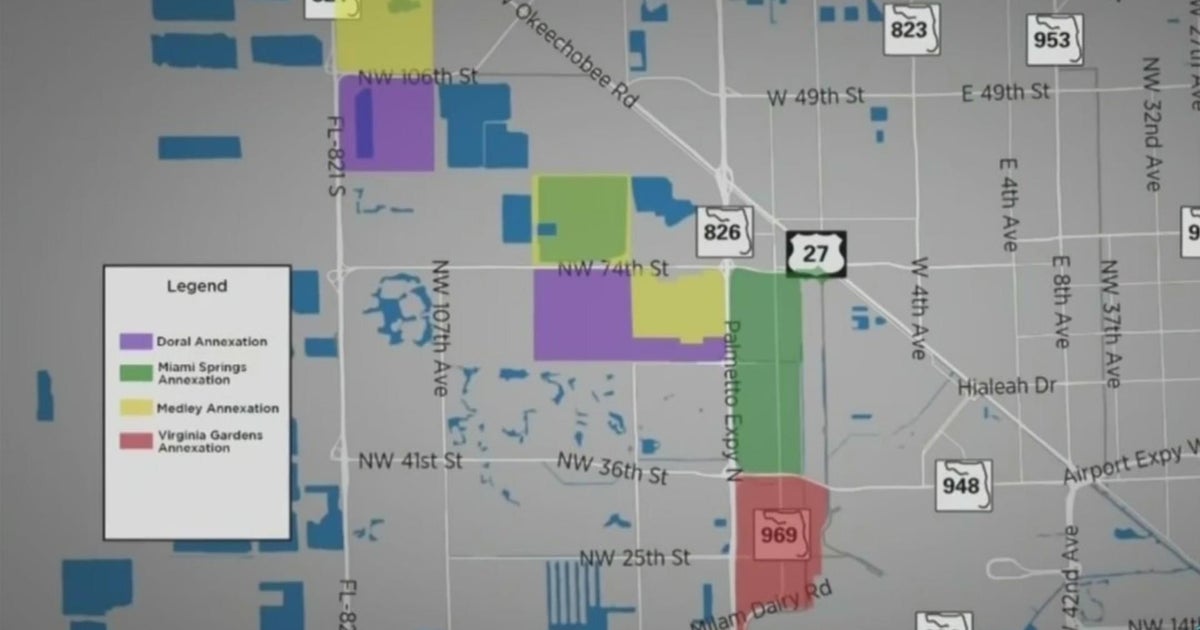Miami woman who’s lived in a treehouse for 17 years is demolishing it
Chasser doesn’t know exactly why she hates the indoors, but at that moment, she decided she couldn’t live happily with air conditioning or in a typical house.
For the past three decades, Chasser has lived in treehouses, including one in Miami-Dade County that she’s called home for the last 17 years. She has enjoyed showering in the rain, listening to frogs croak while she falls asleep and playing with her grandchildren in a pond.
Even when county officials declared her home unsafe a few years ago, Chasser said she would never tear down her treehouse, which has a bedroom, a kitchen and an office. But as the fines recently surpassed $40,000, Chasser said she couldn’t fight the county any longer.
The 72-year-old decided to demolish her treehouse.
A contractor began disassembling the house this week, and Chasser said it will be gone by Monday.
“I can’t fight it anymore,” Chasser told The Washington Post. “I’m kind of over the whole thing. It’s gotten real depressing. I didn’t really have a choice, and I cry in between feeling okay.”
After giving birth to Wren in 1976, Chasser lived in a van and in a cone-shaped tent until her brother helped build her first treehouse in 1992 in a Miami-area farming community. Hurricane Andrew struck shortly before Chasser moved in, but though the surrounding trees were damaged, her treehouse remained.
In 2006, Chasser moved about seven miles away with her son, Joshua Braden Levy. Their half-acre property, which had a single-family home, was mostly covered by grass and trees. The duo envisioned building a treehouse between an oak and a strangler fig tree in the front yard. They hired carpenters to build it and added electricity, running water, WiFi and a pond that serves as a pool.
A hut on the ground below the treehouse has a kitchen with an oven, stove, sink and refrigerator. It’s next to an office with a TV and walls covered with family pictures and books. Chasser climbs curved steps to her bedroom atop a tree. There’s a chickee house for visitors, which Chasser used to rent on Airbnb.
“It’s the prettiest property in Miami,” Chasser said.
Levy kept more traditional living quarters, taking up residence in the property’s single-family home, but he died of a heart attack a few years later at 32 years old, Chasser said. Depressed and searching for an identity, Chasser built a career selling organic popcorn called Greenthumb Popcorn.
Preserving Levy’s memory is partly why Chasser didn’t want to lose the treehouse, but that threat became a possibility in 2015. That year, Chasser said she kicked a tenant out of a room she’d rented out in the treehouse; the woman called Miami-Dade County officials.
Supervisors found multiple violations, saying Chasser was living in an unsafe structure, illegally running a rooming house, had built a property without permits and was using an unauthorized treehouse within a single-family residential district, Chasser said.
Lorna Mejia-Lopez, a spokeswoman for Miami-Dade County’s department of regulatory and economic resources, said that electricity and running water need to be installed with permits, which wasn’t done in Chasser’s case.
Chasser said that renovating the treehouse to meet the county’s standards would cost more than $100,000 — money she said she didn’t have in 2015. She said she cried every night and couldn’t sleep for about a year.
In 2016, Chasser told The Post: “I’m ready to fight for my home. All I know is I’m not taking my treehouse down.”
The fines and penalties have added up over the years. Chasser said she has paid the county thousands of dollars to cover what she could. But she still owes about $45,815 in fines, fees and liens, Mejia-Lopez said.
“We’re really not trying to kick her out of her treehouse,” Mejia-Lopez said. “We’re just looking to make sure that when you’re building on your property, you’re doing it within the county’s standards and regulations, so that you, as a homeowner, are kept safe, and you’re keeping your neighbors safe.”
Chasser said she’ll never be able to pay the fines in full. She decided in March to demolish the home where she helped raise her granddaughters and her 6-month-old golden retriever, Delilah. An online fundraiser she started this summer has raised about $3,500, but she said the demolition will cost about $20,000, which she will finance through her mortgage lender.
Chasser hopes to one day rebuild a treehouse on the property with the proper permits, but she doesn’t know where she’ll sleep in the meantime.
“I don’t ever want to leave here,” she said.
Chasser said she last tried sleeping indoors in 2016, when she was staying in a quiet hotel room in Costa Rica with a friend. She awoke in the middle of the night in a panic, feeling claustrophobic. She grabbed a pillow and a blanket and slept peacefully on the balcony.
She might try to sleep indoors again soon, but if she feels claustrophobic, she said she’ll sleep outside on a mattress. A yellow sign hanging from her tree states “PLEASE DO NOT FEED THE FEARS,” so she’s trying not to worry about her future circumstances.
Chasser has protested against the government in the past, advocating for American soldiers to return from the Vietnam War in the 1960s and 1970s and participating in the Great Peace March for Global Nuclear Disarmament in 1986. But she said she’s tired of arguing with county officials.
“I’m starting to just accept what it is,” she said.



